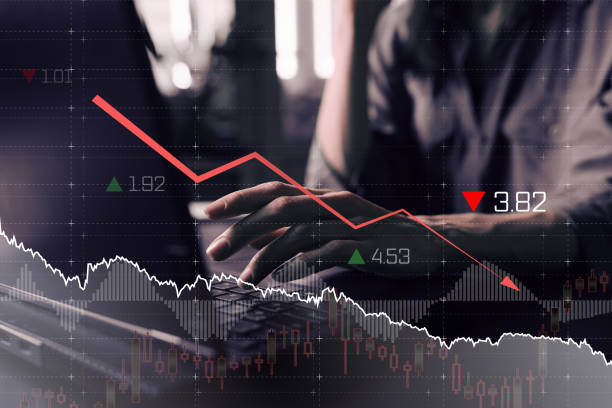The level of economic interdependence among countries has increased significantly, with economies becoming more deeply enmeshed in the global marketplace and intricately linked through complex global value chains. After two difficult years of the pandemic, when things were getting back to normal, businesses had a hard time with messed-up supply chains. It was found tough to meet the higher demand for goods and services and started charging customers more because making things cost more. Overall, the economy affecting regular people a lot is a sign that a recession might be on the way. Russia attacking Ukraine has made political differences more obvious, and the sanctions on Russia have caused big economic problems in Europe and the Western countries and the world's economy and political situation are shaky with the ongoing war.
The Economics Observatory has been sharing expert insights on the economic impact of the war since Russia attacked Ukraine in February 2022. The world has supported Ukraine strongly, imposing tough sanctions and trade measures on Russia on an unprecedented scale. Before the war, about half of Russia's GDP came from trade. Even with the sanctions, Russian aggression continues, and looking forward, their economy may suffer from losing technical, scientific, and cultural ties with the West. The conflict has affected global businesses and consumers, especially those connected to Russia, as seen in the stock market with a significant drop in share prices for firms linked to Russia. European countries, especially in the East, have faced major losses due to trade links, while Western European countries have been hit hard through ownership connections. On the other hand, countries less tied to Russia, like the United States and China, have felt fewer effects. The ongoing war is making Europe feel the long-term impact on its economy, and the global financial impact is hard to ignore. It's crucial to note that the war is worsening existing global economic issues, such as rising inflation, extreme poverty, increased food insecurity, deglobalization, and environmental degradation. Russia and Ukraine were significant players in the euro area's food and fertilizer imports before the invasion. The euro area, being a highly open economy, is susceptible to disruptions in global markets and value chains.
As economists were discussing the ongoing Ukrainian-Russian war, a new and critical issue emerged—the Israeli-Palestinian conflict. This conflict not only has the potential to disrupt trade routes, impact energy prices, and create geopolitical uncertainties but also poses a serious threat to the global economy. The recent escalation in the Middle Eastern crisis and resulting geopolitical unrest have made investors anxious, fearing the consequences of the conflict.
Global geopolitical tensions significantly affect how people view economic growth and influence their decisions about where to invest their money. Since the Middle East is a vital hub for international trade, experts are also considering potential disruptions in regional trade. A direct conflict between Israel and Iran could deal a massive blow to the world economy, potentially leading to a global recession. This scenario could result in declining risk assets and soaring inflation, adding to the economic challenges posed by other ongoing global conflicts.
Adding to these concerns is the ongoing issue of attacks on ships in the Red Sea, pushing ocean freight rates higher. This situation has triggered warnings of inflation and delayed goods. Companies are facing challenges with delays in product deliveries, and container ship journeys are expected to take at least 10 days longer. Shipping rates have risen, and these costs could be passed on to customers, potentially driving higher inflation.
Moreover, disruptions in shipments of liquefied natural gas (LNG) may impact wholesale energy prices, but any increases won't affect domestic bills until April 2024 at the earliest due to existing energy price caps.
The sudden disruption in global supply chains adds uncertainty as major central banks consider returning to normalizing monetary policy. The resilience of the global economy is about to face a test after recent efforts to combat the impacts of the COVID-19 pandemic and Russia's ongoing war in Ukraine. Another hit to global supply chains or a rise in oil and gas prices is a major concern for world economies.
The world's two biggest economies, the United States and China, are facing some money troubles. China is slowing down, especially in the housing market, and its leader, President Xi Jinping, wants to change how the country makes money, which might cause problems in global trade. Meanwhile, the U.S. is worried about a possible recession as it tries to control rising prices. The whole world has been dealing with many problems since 2020, like the COVID-19 pandemic and conflicts, and the global economy is not growing very fast. The tension between the U.S. and China makes these issues even more challenging, as explained by Eswar Prasad, a professor who studies trade at Cornell University.
In this current situation, if major powerful countries have more issues, it could make things more unstable. The US is a good friend of Israel, but China and Russia are getting closer to Iran. People in the West are worried that China and Russia might use the conflict to shift attention and military focus away from other places. Russia's invasion of Ukraine, the trade war between the US and China, and growing tensions over Taiwan all indicate that global politics is once again affecting economic and market results. This raises serious concerns about the possibility of a worldwide economic downturn.
The interconnectedness of these geopolitical events and their impact on trade, inflation, and overall economic stability cannot be ignored. World leaders must address these challenges collaboratively, seeking diplomatic solutions and working towards a more stable and predictable global economic environment. Ignoring or underestimating the severity of these issues could have far-reaching consequences for economies worldwide.






